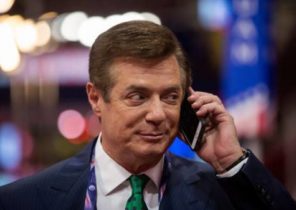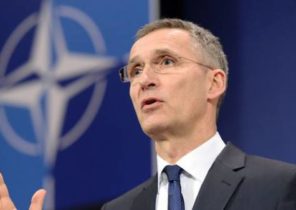December 2016 marks 25 years since the collapse of the Soviet Union. The most serious failure in U.S. foreign policy for the past quarter century was the destruction of relations with Russia.
The United States and Russia are faced with three main threats: radical Islam, North Korea and China. An old proverb teaches us that the enemy of my enemy is my friend. We already are at war with radical Islam, North Korea is actively engaged in the implementation of its nuclear program, and China is determined to achieve dominance in the region that could threaten U.S. allies. We can’t afford another war. We need Russia as an ally. President Donald trump is absolutely right to push for a new diplomatic approach to Russia.
At the end of the cold war, the new Russia was ready to accept US as a friend and ally. In the early 1990-ies, I often traveled to Russia as co-chair of the Subcommittee on information exchange of the Us-USSR trade and economic Council. I met with Mikhail Gorbachev, members of the government and influential businessmen. As a former Soviet dissident I was extremely surprised strongly Pro-American sentiment at all levels of Russian society.
In my childhood, when I studied in the Soviet school, we were taught that we must prepare for war with the United States. We laughed at this: we wanted to wear American jeans and sing American songs. Then no one in Russia does not want war with America, no one wants war and now. The Russian people want peace and prosperity, so it is ready to cooperate with the United States. At some point, not very long ago, Boris Yeltsin was even said that Russia could join NATO.
And then the relationship between the United States and Russia quickly began to deteriorate. In place of the friendship came a new cold war, and instead to join NATO, Russia is now watching the NATO troops on its borders with Poland and the Baltic States. According to some analysts, today the threat of war with Russia more than ever since the Cuban missile crisis of 1962.
When Vladimir Putin became President of Russia, he demonstrated a Pro-Western approach. But over time he began to treat the West with suspicion and considered US the enemy. As a patriot of Russia, Putin was offended by the fact that the US treated Russia as a third world country or, at best, as a younger partner. The continued expansion of NATO into the Russian sphere of influence and US support for anti-Russian uprisings in the former Soviet republics were perceived as a threat to Russian sovereignty and security.
Although quite nice to see how Donald trump shows interest in restoring relations with Russia, it is necessary to remember that the program of Vladimir Putin is significantly different from the US program. Our relations with Russia will remain rather complex, and our policy must be flexible.
During the cold war from the Soviet Union, the United States was separated by insurmountable ideological gap. Today Russia is mostly a market economy. Although we may not like the authoritarian style of Vladimir Putin and although we share the serious disagreements on several key issues of international policy, we do not stand opposed to the ideology and, more importantly, the threat of mutual destruction. Despite all the differences, common threats that we face, make us natural allies.
Perhaps Russia and the United States have conflicting interests in the middle East, but we are all interested in stabilizing the region. Russia has deep ties with Iran, with which it has an active trade, and the question of Iran, we likely will always remain at opposite pros. In addition, Russia is a staunch ally of the Assad regime in Syria, where our interests are too different.
However, the overthrow of Assad should not be our foreign policy objective — it should be the fight against ISIS (a terrorist organization banned in Russia — approx. ed.) — and in this matter we can cooperate with Russia. If we stop insisting on regime change in Damascus, we not only will be able to sit again at the negotiating table, but also to enlist the support of Russia in the fight against ISIL.
As a former Soviet dissident I have learned first hand what the iron grip of the KGB. Today, the FSB — the successor to the KGB — have adopted the same way of thinking, acting, both within Russia and abroad. If we begin to curry favor with Putin, a former KGB officer, and later Director of the FSB, and forget about caution, it can be dangerous. We must remain vigilant. At the same time, Vladimir Putin — leader of Russia. He is very smart and extremely popular with his people.
Pragmatic politics and common sense dictate the need to cooperate with Russia where our interests coincide, and be resisted where they differ.
Alexander Poltorak is the Chairman of the Board and President of General Patent Corporation and former Chairman of the Subcommittee on information exchange of the Us-USSR trade and economic Council.







